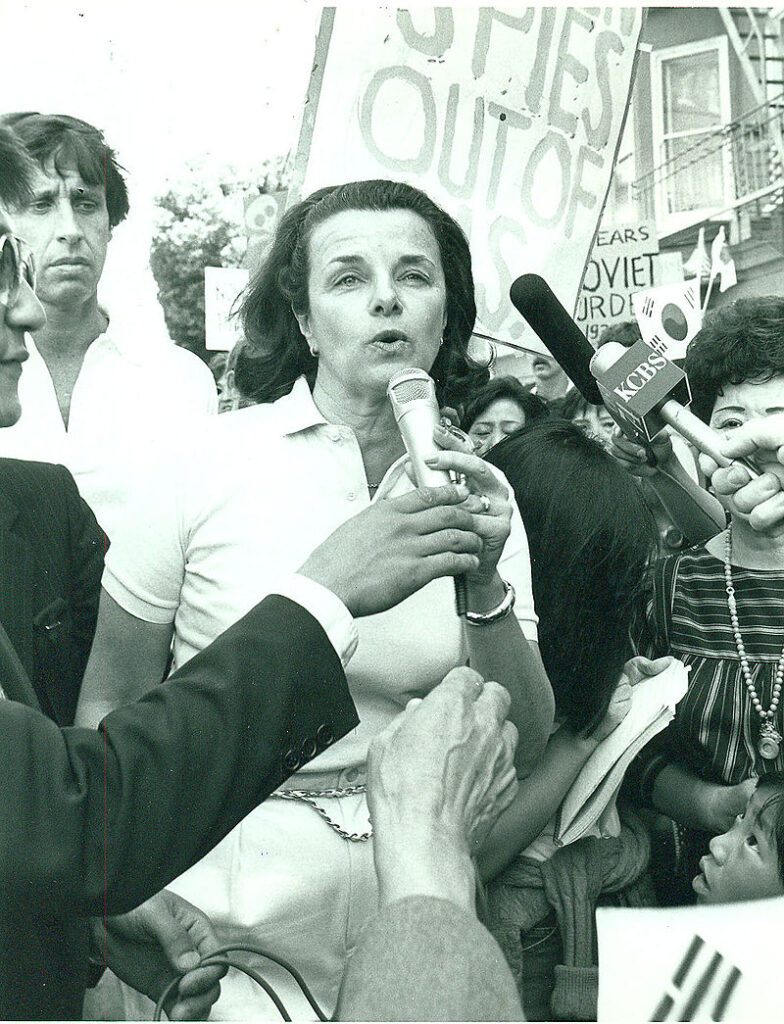On November 27, 1978, Dianne Feinstein was 45 years old, President of San Francisco’s Board of Supervisors, with two failed attempts to be elected mayor of San Francisco. On that day, she told reporters she was planning to quit politics. Two hours later, Dan White murdered board member Harvey Milk and Mayor George Moscone. It was Feinstein who found Milk’s body. She was the one who had to stand behind the microphone to tell the citizens of San Francisco what had happened. And then she was the one who took over as mayor.
This led to a remarkable series of barrier-smashing achievements in politics and public policy. She was the first female major-party candidate for Governor of California. She lost that race, but she became the first woman senator from California, breaking the record for the longest-serving woman in the Senate, and was re-elected with comfortable margins to serve six terms.
Feinstein, who died last week at age 90, liked to think of herself as a centrist, even rarer in today’s polarized politics. Her views did not fall into any category; they represented her honest view of what was best and could succeed at that moment, with the political realities. She supported gay rights but vetoed domestic partnership legislation. She did not always support the proposals from women’s rights groups and was sometimes accused of being too friendly to business interests. She was an independent thinker who was unafraid to take on the toughest issues. She was willing to change her mind about some issues as circumstances changed and more information was available, initially supporting the war in Iraq but later overseeing a devastating report on the CIA’s detention and interrogation program.

She was behind the (now-lapsed) assault weapons ban. In a speech supporting the legislation, she vividly described her experience finding Harvey Milk’s body. She opposed the nomination of Supreme Court Justice Brett Kavanaugh following the allegations of abuse. She voted to acquit President Clinton in his impeachment trial but proposed a formal censure. She voted to impeach President Trump. And she cast her last vote Thursday morning, walking unaided, trying to prevent a government shutdown, just hours before she died.
Over the past months, the focus has been on how frail Feinstein became and the growing resentment many people felt for her refusal to step aside. But the tributes from those who worked with her, those inspired by her, and those who are grateful for the path she made easier for those who followed have returned to us Feinstein at her best, always elegant, always professional, but always determined to do her best for her state and her country.












